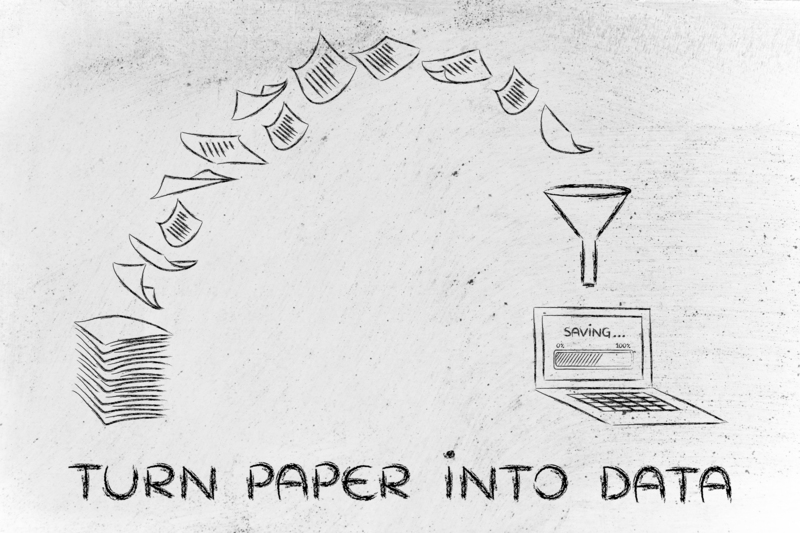Everyday Steps for Reducing Household Trash: Guide to a Greener Home
In an age where waste management and environmental sustainability have become significant concerns, reducing household trash is not just a trend but a crucial lifestyle change. Excessive household waste contributes to overflowing landfills, increased carbon emissions, and detrimental environmental impacts. Fortunately, with a few mindful changes to your daily routine, you can drastically cut down on your trash output, save money, and play your part in preserving the planet. Explore these practical, effective steps for minimizing home waste and discover how small actions create meaningful change.

Why Is It Important to Reduce Household Waste?
The average person generates over 4 pounds of waste each day--that's nearly 1.5 tons of solid waste per year! Most of this ends up in landfills, where it can take decades or even centuries to decompose. By reducing home waste, you directly decrease pollution, conserve natural resources, and support a circular economy. Furthermore, lowering your trash output often means simplifying your life and making more eco-friendly, mindful choices.
Key Benefits of Minimizing Household Garbage
- Reduces landfill overflow: Less trash means less reliance on increasingly scarce landfill space.
- Decreases environmental impact: Producing less garbage reduces greenhouse gas emissions and conserves resources.
- Saves money: Buying only what you need, especially in reusable forms, reduces unnecessary spending.
- Promotes a healthier lifestyle: Using fewer disposable items often means using fewer chemicals and less processed food.
- Sets a positive example: Teaching kids and neighbors about everyday trash reduction inspires wider community change.
1. Rethink Your Shopping Habits
The journey to lower household trash starts at the store. Many of the items we discard originate from unnecessary purchases, single-use packaging, and impulse buys. Here's how to shop smarter:
Buy in Bulk and Use Reusable Bags
- Patronize bulk stores: Bring your own containers and purchase dry goods, grains, and cleaning products in bulk to avoid excess packaging.
- Use reusable bags and produce sacks: Cloth or durable bags aren't just for groceries--use them for all shopping trips to avoid single-use plastic bags.
- Choose products with minimal packaging: Whenever possible, select items packaged in recyclable materials like glass or cardboard.
By being a conscious consumer, you set the stage for less waste later. Bulk shopping and reusable bags can substantially lower single-use plastics entering your home.
2. Embrace the Reuse and Repurpose Mentality
The famous reduce, reuse, recycle mantra places "reuse" before "recycle"--and for good reason. Repurposing items not only diverts them from the landfill but also sparks creativity and resourcefulness.
- Repurpose containers: Glass jars, old bins, and tins can become storage solutions, planters, or craft supplies.
- Use cloth instead of paper: Swap paper towels and napkins for washable cloth alternatives, reducing kitchen waste substantially.
- Transform leftovers: Get creative with food scraps--bone broths, stir-fries, and stock all make excellent use of leftovers.
- Repair rather than replace: Try fixing clothes, appliances, and furniture instead of discarding them at the first sign of wear.
Adopting this mindset transforms everyday items into valuable goods, ensuring household garbage reduction becomes a pleasurable, habitual activity.
3. Smart Food Management: Preventing Food Waste
Food waste accounts for a sizable proportion of domestic trash cans. Minimizing kitchen waste benefits both the environment and your budget.
Plan Your Meals and Shop with a List
- Before heading to the supermarket, take inventory of what you already have to avoid buying duplicates.
- Write out a meal plan and ingredients needed, so you only purchase necessary items.
- Buy perishable goods in smaller quantities, especially fresh herbs, produce, and dairy.
Store Food Properly
- Use airtight containers to extend shelf life and prevent spoilage.
- Organize your fridge and pantry so older items are used first--think F.I.F.O. ("first in, first out").
- Freeze leftovers and excess produce before they expire.
By proactively managing the food you bring home, you'll enjoy fresher meals and avoid unnecessary waste--key for reducing kitchen garbage.
Compost Food Scraps
Not all food scraps belong in the trash. Composting transforms coffee grounds, egg shells, and vegetable peels into rich fertilizer for plants. Whether you try an outdoor compost pile or a compact indoor bin, you'll dramatically cut down on what ends up in your garbage bag.
- Accepted compostables: Fruit and vegetable scraps, coffee filters, tea bags, yard trimmings, eggshells.
- Avoid composting: Meat, dairy, and oily food scraps (unless you have a specialized bin).
Home composting turns what would otherwise be trash into a valuable resource for your garden, emphasizing a cycle of regeneration rather than disposal.
4. Rethink Disposable Items for Reusables
From cleaning supplies to daily necessities, switching from disposables to reusables is one of the most effective ways to decrease daily garbage.
Swap Out These Common Household Items
- Plastic water bottles: Use a stainless steel or glass bottle and refill from the tap or a filter.
- Single-use coffee pods and cups: Brew with a reusable filter or French press and bring your own cup to cafes.
- Paper towels and napkins: Cloth towels and napkins are durable, washable, and significantly reduce waste.
- Disposable cutlery and straws: Keep a set of reusable utensils and straws at home or in your bag.
- Plastic wrap and sandwich bags: Beeswax wraps, silicone bags, or glass containers are excellent alternatives.
With each swap, you'll find not only a reduction in household trash but also long-term financial savings.
5. Recycle Right
While recycling isn't a cure-all, it's an important component of an effective strategy to minimize home waste. However, recycling only works when done properly.
- Learn your community's recycling rules. Not all plastics and papers are accepted everywhere.
- Rinse containers to avoid contamination.
- Don't wish-cycle--when in doubt, throw it out to prevent recycling stream contamination.
- Consider recycling less obvious items like batteries, electronics, and textiles at designated drop-off locations.
Recycling is vital for keeping valuable materials out of landfills, but practicing reduction and reuse first makes the most difference.
6. Opt for Digital Over Physical
Paper is a surprising contributor to household waste. Make use of today's technology to cut down paper clutter:
- Choose paperless billing and digital receipts whenever possible.
- Sign up for electronic subscriptions instead of print magazines or newspapers.
- Use apps for notes, lists, and tickets rather than printing them out.
Over time, these small choices will lead to a tangible reduction in paper waste at home.
7. Buy Quality, Not Quantity
Often, "cheap" equals disposable. Investing in high-quality, durable products means they'll last longer, work better, and reduce the cycle of replacement and disposal.
- Choose sturdy cookware, clothing, and furniture built to last.
- Embrace the motto "buy less, choose well, make it last".
- When things wear out, consider mending or upcycling before tossing them away.
This approach not only reduces household garbage but also supports a less wasteful, more intentional lifestyle.
8. Donate, Sell, or Share Unwanted Items
Whenever you declutter, don't reflexively reach for the trash can. Many unwanted items can be given a new home, diverting them from the landfill and supporting community sustainability.
- Donate usable clothing, books, and all kinds of goods to local charities, libraries, or shelters.
- Host a garage sale or use online platforms to sell unwanted items.
- Try "Buy Nothing" groups in your neighborhood to give away goods to people who need them.
- Offer surplus garden produce, tools, or supplies to neighbors, friends, or community centers.
Once you see the value in keeping items out of the landfill, minimizing waste at home feels even more rewarding.
9. Educate and Involve the Whole Household
Effective household trash reduction is a team effort. Make sure everyone--partners, kids, roommates, or relatives--understands why and how you're working towards less trash.
- Set up labeled bins for recycling, compost, and trash in convenient locations.
- Explain the benefits and get kids involved in composting, repurposing crafts, or donation drives.
- Lead by example and celebrate your progress as a group.
When sustainable habits become routine for all family members, your collective impact multiplies.
10. Advocate and Support Eco-Friendly Initiatives
The actions you take at home are even more effective when echoed in your community. Support local and national policies for waste reduction, and encourage businesses to adopt greener practices.
- Participate in community cleanups and zero-waste workshops.
- Ask local businesses to stock more bulk and eco-friendly products.
- Support legislation aimed at reducing single-use plastics and improving recycling programs.
Becoming an advocate for household trash minimization helps spur change well beyond your doorstep.
Conclusion: Small Steps Lead to Big Change
Reducing household trash isn't about perfection, but progress. With each conscious decision--whether that's refusing a plastic straw, reusing a glass jar, or composting your vegetable peels--you're helping to create a cleaner, healthier future.
- Start with simple swaps and gradually add new habits.
- Share your successes and lessons with friends and neighbors.
- Celebrate milestones, like taking out the trash less often each month.
With these everyday steps for reducing household trash, every family can play a part in building a more sustainable world. Begin today: your planet (and future generations) will thank you.

Frequently Asked Questions about Minimizing Household Waste
What are the biggest sources of home waste?
The largest contributors are typically food scraps, plastic packaging, single-use items (like paper towels or coffee cups), and outdated or broken electronics.
Is composting difficult?
Composting can be as simple or complex as you want it to be. Even a basic worm bin or corner of your yard compost pile can significantly reduce garbage at home.
How can I reduce waste in an apartment?
Even in small spaces, you can shop with reusable bags, compost with a countertop or balcony bin, recycle properly, and choose products with minimal packaging. Community gardens often accept food scraps as well.
What if my community doesn't support recycling or composting?
Focus first on reducing and reusing to prevent waste before it's created. Many cities offer drop-off points for recyclables or compost, or you can start petitioning for better local waste programs.
Take Action--Start Reducing Your Household Trash Today!
Every item you save, reuse, or refuse counts towards a cleaner environment. Bookmark this guide and take the first step towards a truly zero-waste home!